The axis of the uniform cylinder in figure is fixed. The cylinder is initially at rest. The block of mass M is initially moving to the friction and with speed v1. It passes over the cylinder to the dashed position. When it first makes contact with the cylinder, it slips on the cylinder, but the friciton is large enough so that slipping ceases before M loses contacts wtih the cylinder. the cylinder has a radius R and a rotaitonal intertia I
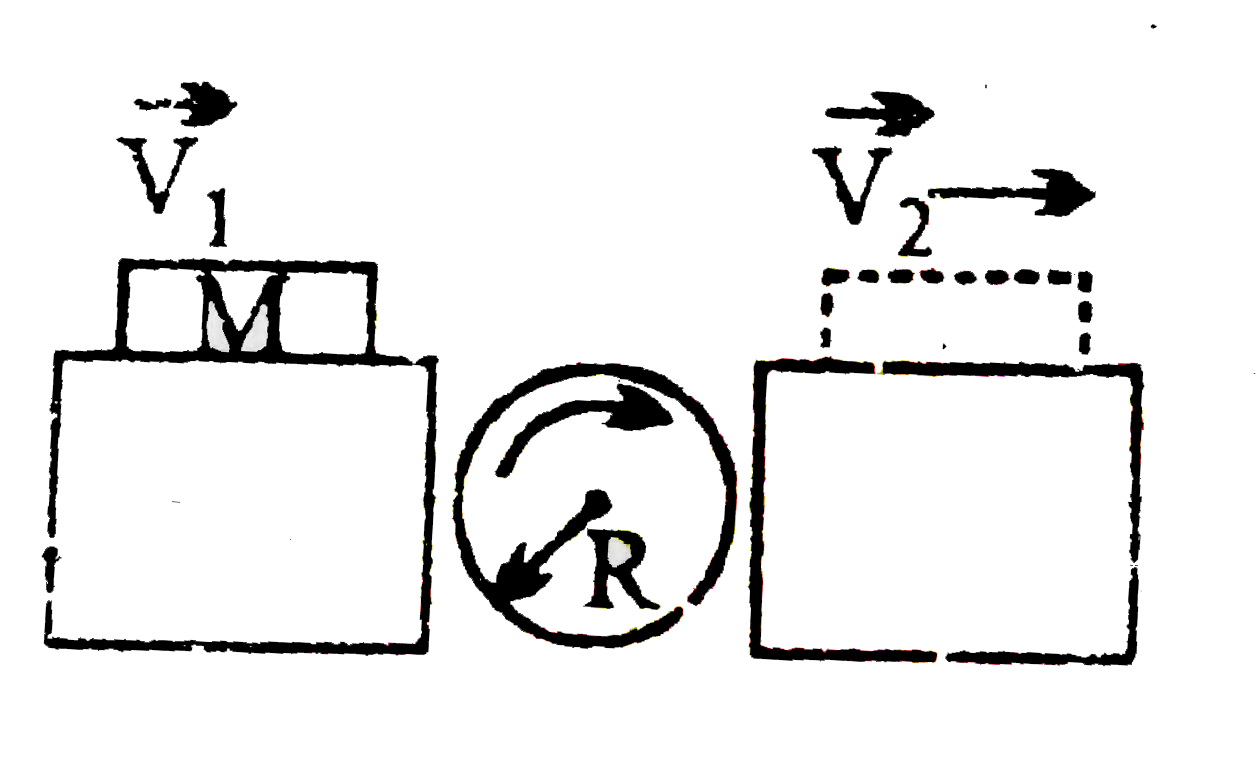
For the entire process the quantitiy (ies) which will remain conserved for the (cylinder+block) system is/ are (anuglar momentum is considered about the cylinder axis)
mechanical energy, momentum and angular momentum
mechanical energy & angular momentum only
momentum & angular momentum only
angular momentum only
The correct Answer is:D
Step by step video, text & image solution for The axis of the uniform cylinder in figure is fixed. The cylinder is initially at rest. The block of mass M is initially moving to the friction and with speed v_(1). It passes over the cylinder to the dashed position. When it first makes contact with the cylinder, it slips on the cylinder, but the friciton is large enough so that slipping ceases before M loses contacts wtih the cylinder. the cylinder has a radius R and a rotaitonal intertia I For the entire process the quantitiy (ies) which will remain conserved for the (cylinder+block) system is/ are (anuglar momentum is considered about the cylinder axis) by Physics experts to help you in doubts & scoring excellent marks in Class 12 exams.
Topper's Solved these Questions
- BOOK - BANSALCHAPTER - TEST PAPERSEXERCISE - PHYSICS PART (A)32videos
TEST PAPERS
- BOOK - BANSALCHAPTER - TEST PAPERSEXERCISE - PHYSICS PART (B)3videos
TEST PAPERS
- BOOK - BANSALCHAPTER - TEST PAPERSEXERCISE - PHYSICS PART- C4videos
TEST PAPERS
- BOOK - BANSALCHAPTER - SEMICONDUCTORSEXERCISE - CBSE Question32videos
SEMICONDUCTORS
Similar Questions
The mass of the cylinder is 25 kg and radius of cylinder is 5 m. Find the moment of inertia of a solid cylinder about a tangent to the cylinder.
View SolutionCalculate the moment of inertia of a hollow cylinder of mass M and radius R about a line parallel to the axis of the cylinder and on the surface of the cylinder?
View Solution
Knowledge Check
- Question 1 - Select One
The axis of the uniform cylinder in figure is fixed. The cylinder is initially at rest. The block of mass M is initially moving to the friction and with speed v1. It passes over the cylinder to the dashed position. When it first makes contact with the cylinder, it slips on the cylinder, but the friciton is large enough so that slipping ceases before M loses contacts wtih the cylinder. the cylinder has a radius R and a rotaitonal intertia I
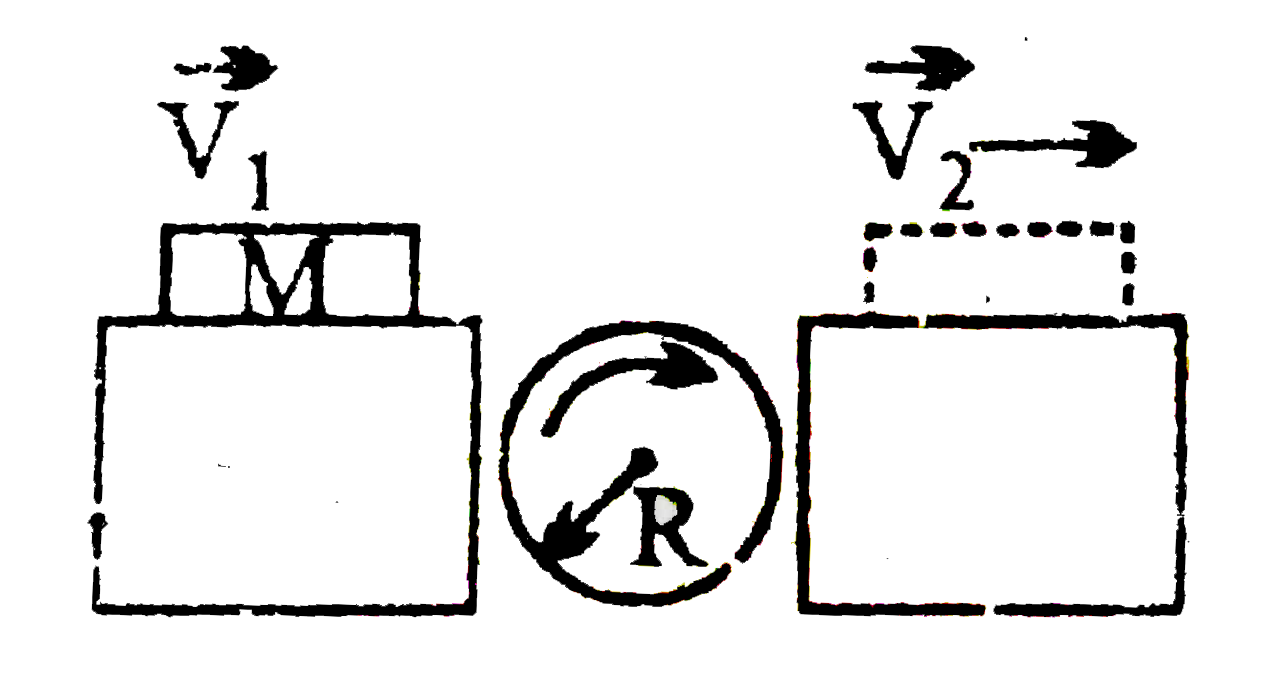
If ω is final angular velocity of the cylinder, thenAv1=ωRBv2=ωRCv1<ωRDnone - Question 2 - Select One
The axis of the uniform cylinder in figure is fixed. The cylinder is initially at rest. The block of mass M is initially moving to the friction and with speed v1. It passes over the cylinder to the dashed position. When it first makes contact with the cylinder, it slips on the cylinder, but the friciton is large enough so that slipping ceases before M loses contacts wtih the cylinder. the cylinder has a radius R and a rotaitonal intertia I
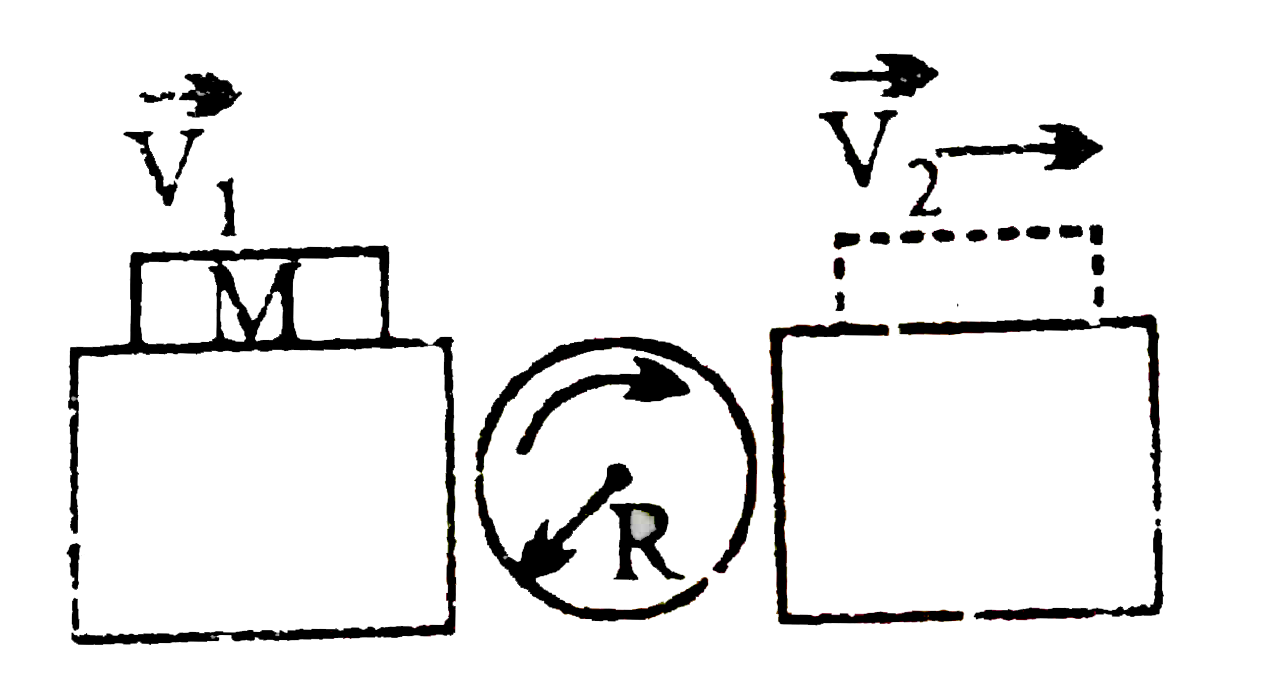
Assertion : Momentum of the block -cylinder system is conserved
Reason: Force of friction between block and cylinder is internal force of block -cylinder system.AIf both (A) and (R) are true and (R) is the correct explanation of (A)BIf both (A) and (R) are true but (R) is not correct explanationC(if (A) is true but (R) is falseDIF (A) is false and (R) is true - Question 3 - Select One
A uniform disc of mass M and radius R is initially at rest. Its axis is fixed through O. A block of mass m is moving with speed v1 on a frictionless surface passes over the disc to the dotted position. On coming in contact with the disc, it slips on it. The slipping ceases before the block loses contact with the disc, due to the high friction. Now, the velocity of mass m is
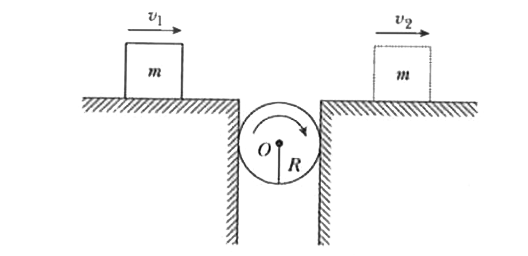 Av2=v11+(M/2m)Bv2=v12MCv2=v11+(M/m)Dv2=2v1
Av2=v11+(M/2m)Bv2=v12MCv2=v11+(M/m)Dv2=2v1
The axis of a cylinder of radius R and moment of inertia about its axis I is fixed at centre O as shown in figure - 5.73 . Its highest point A is in level with two plane horizontal surfaces . A block of mass M is initially moving to the right without friction with speed v1 . It passes over the cylinder to the dotted position . calculate the speed v2 in the dotted position and the angular velocity acquired by the cylinder . if at the time of detaching from cylinder block stops slipping on it .
⎡⎢ ⎢⎣v11+IMR2,v1R(1+IMR2)⎤⎥ ⎥⎦
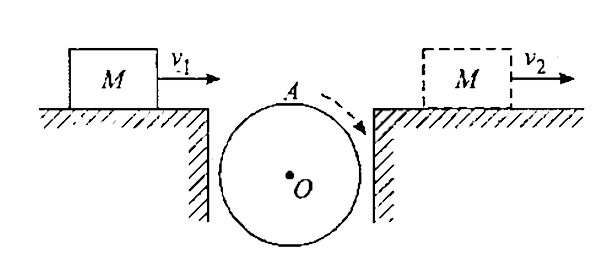 View Solution
View SolutionFind the moment of inertia of a solid cylinder of mass M and radius R about a line parallel to the axis of the cylinder and on the surface of the cylinder.
View SolutionA uniform cylinder of mass m lies on a fixed plane inclined at a angle θ with the horizontal. A light string is tied to the cylinder at the rightmost point, and a mass m hangs from the string as shown. Assume that the coefficient of friction between the cylinder and the incline plane is sufficiently large to prevent slipping. for the cylinder to remain static the value of m is
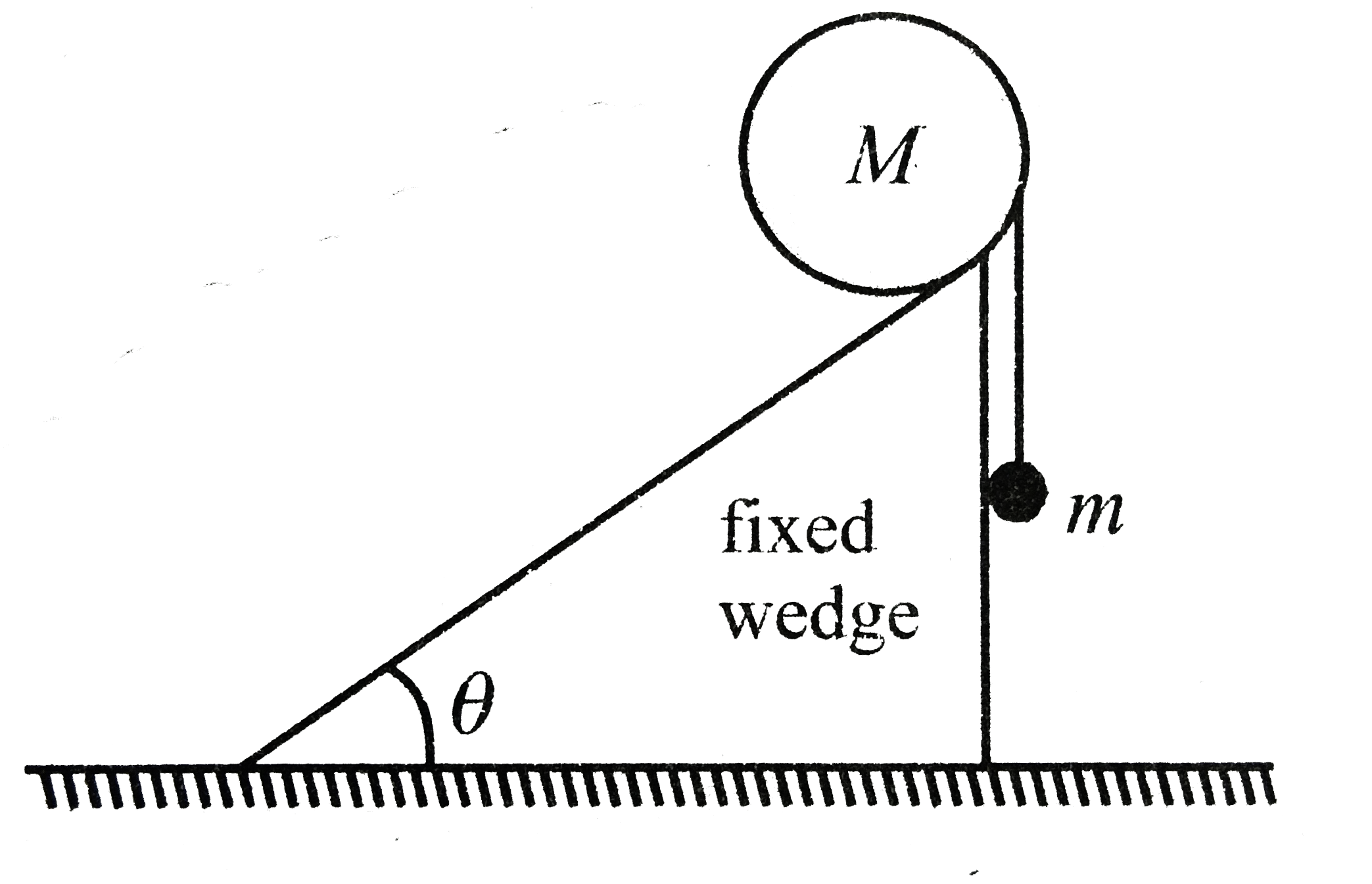 View Solution
View SolutionVelocity of the centre of a small cylinder is v. There is no slipping anywhere. The velocity of the centre of the larger cylinder is
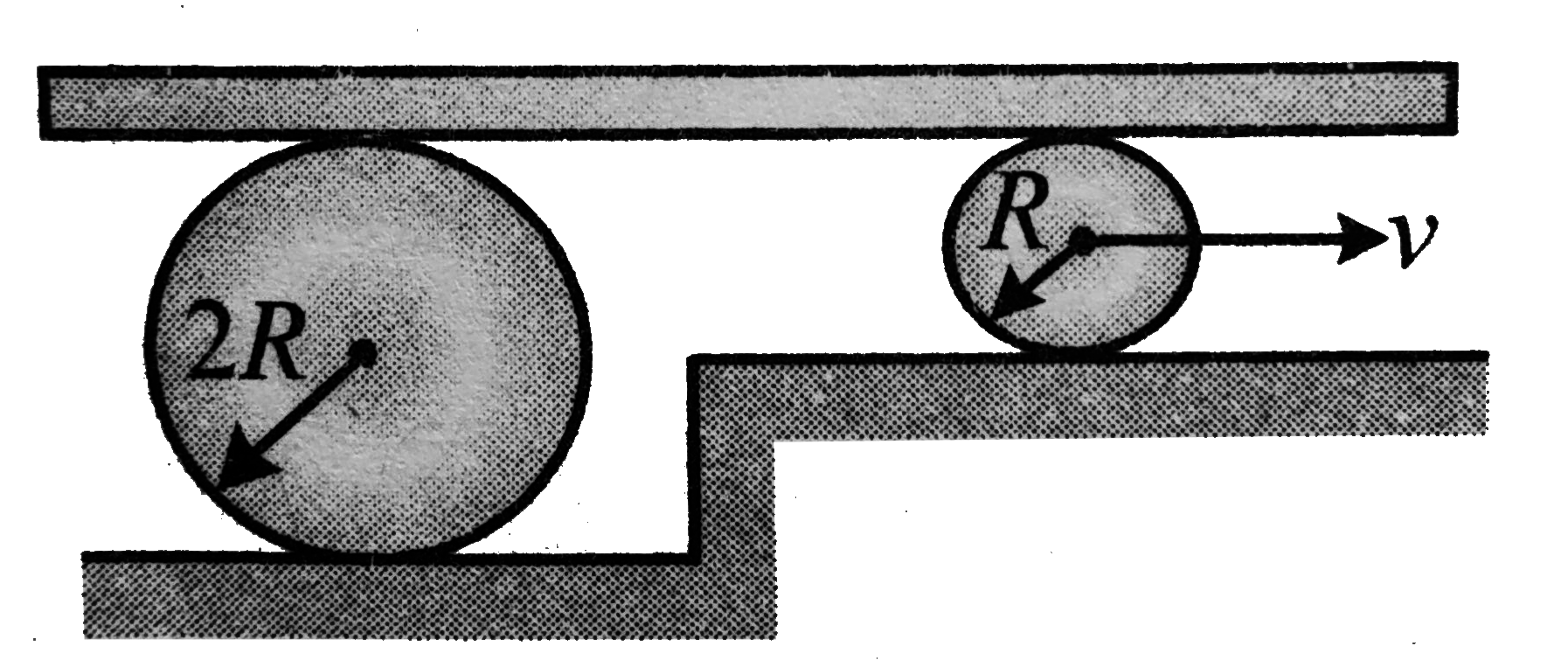 View Solution
View SolutionA cylinder is released from rest from the top of an incline of inclination θ and length l. If the cylinder roles without slipping, its speed at the bottom
View Solution

